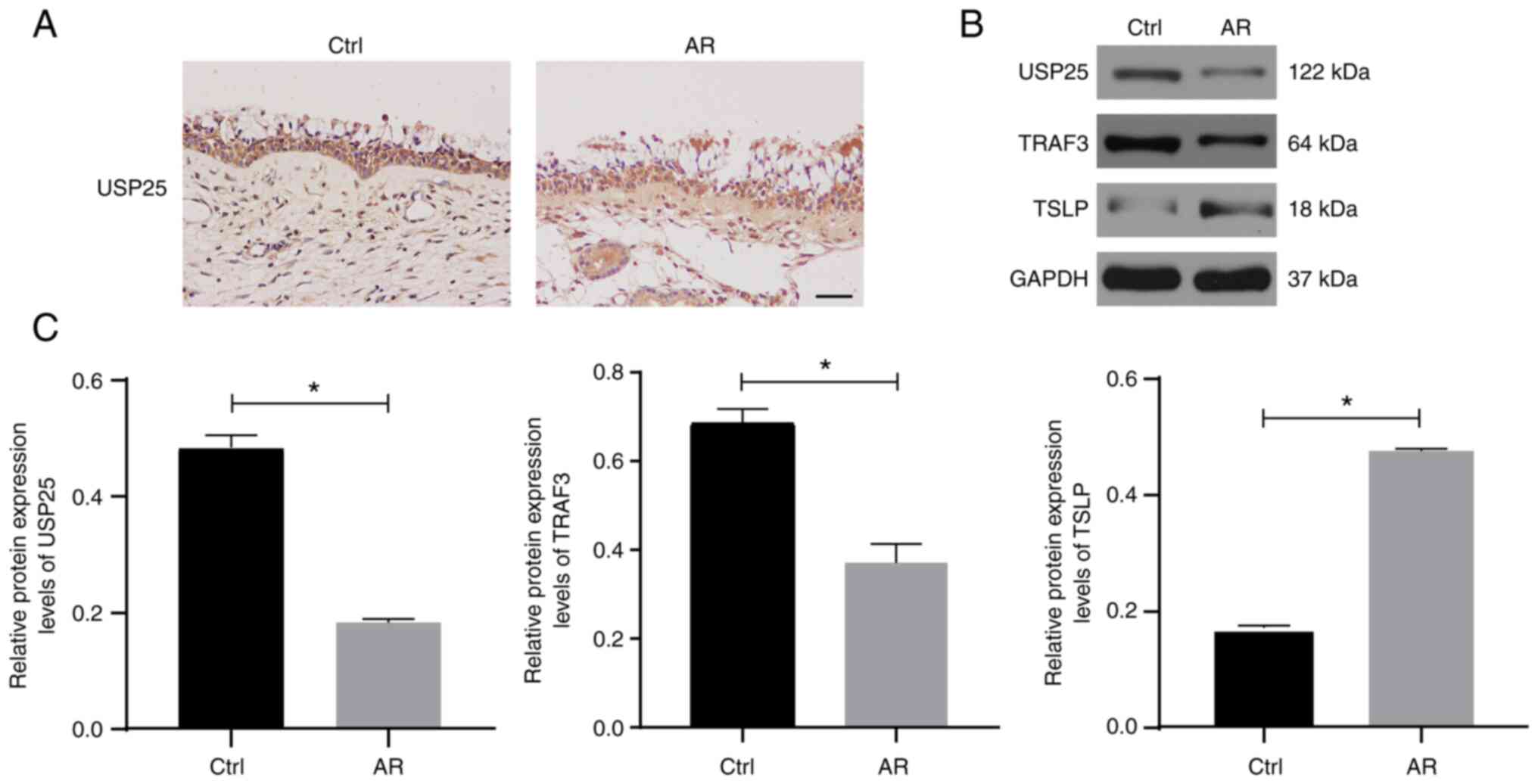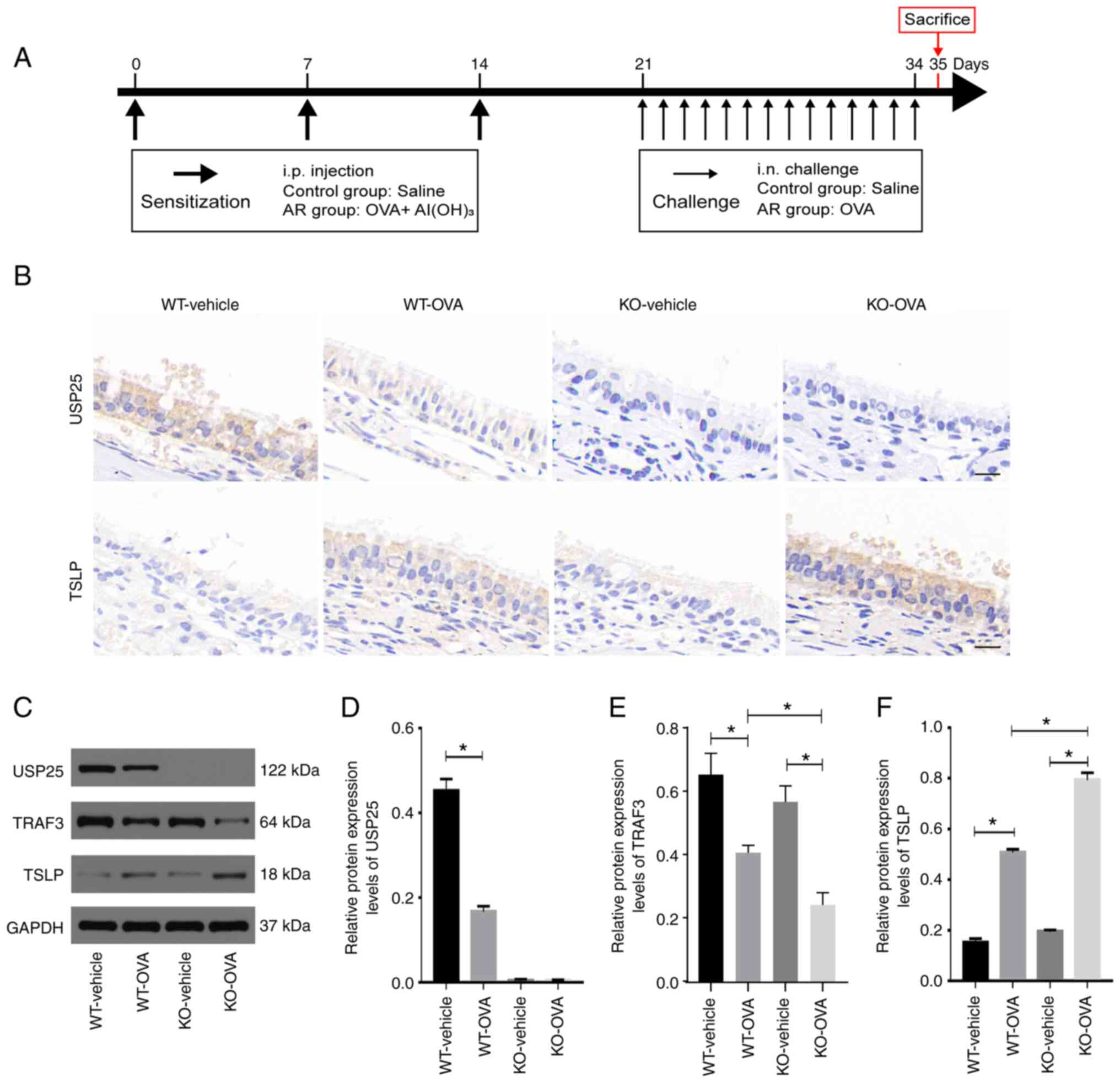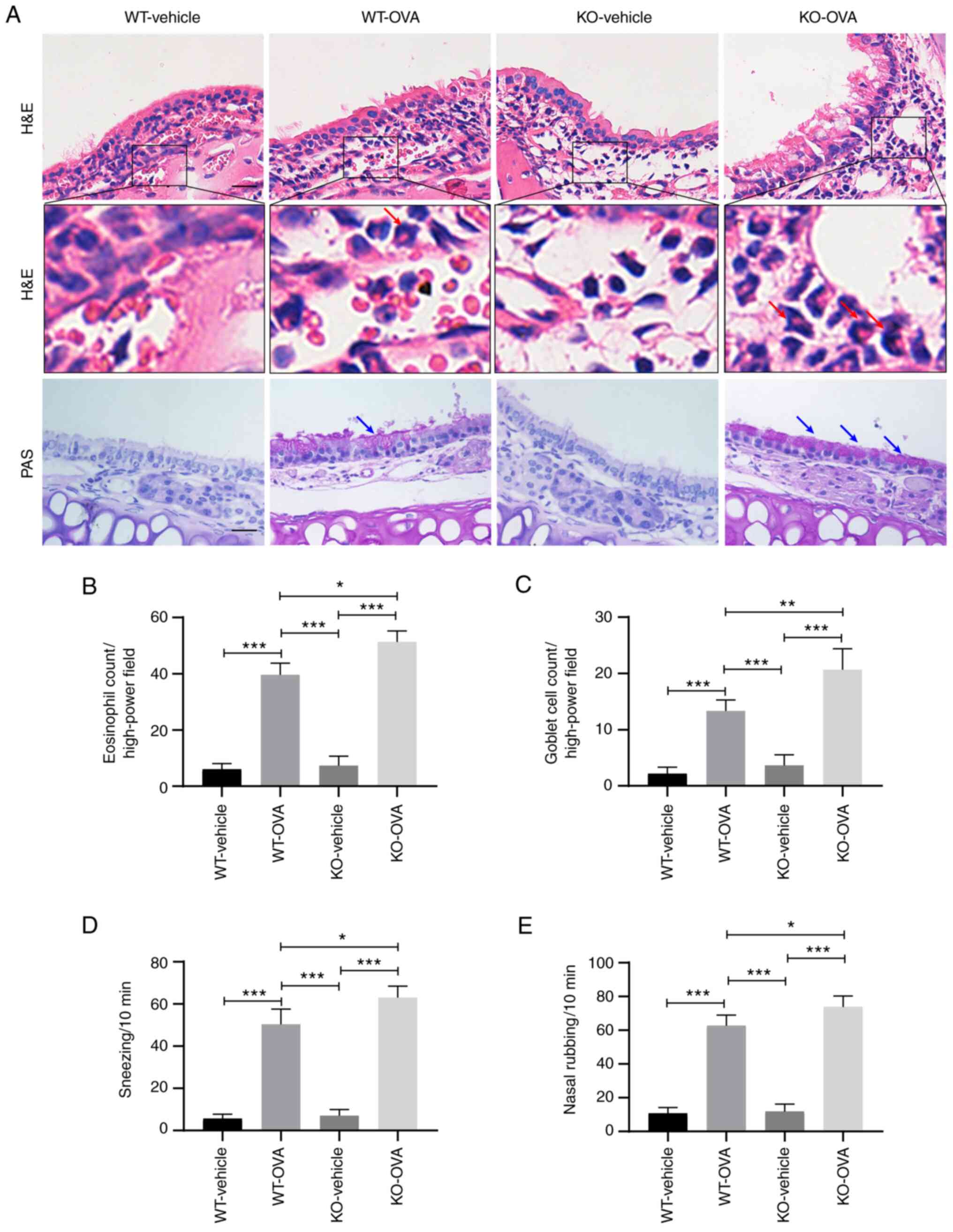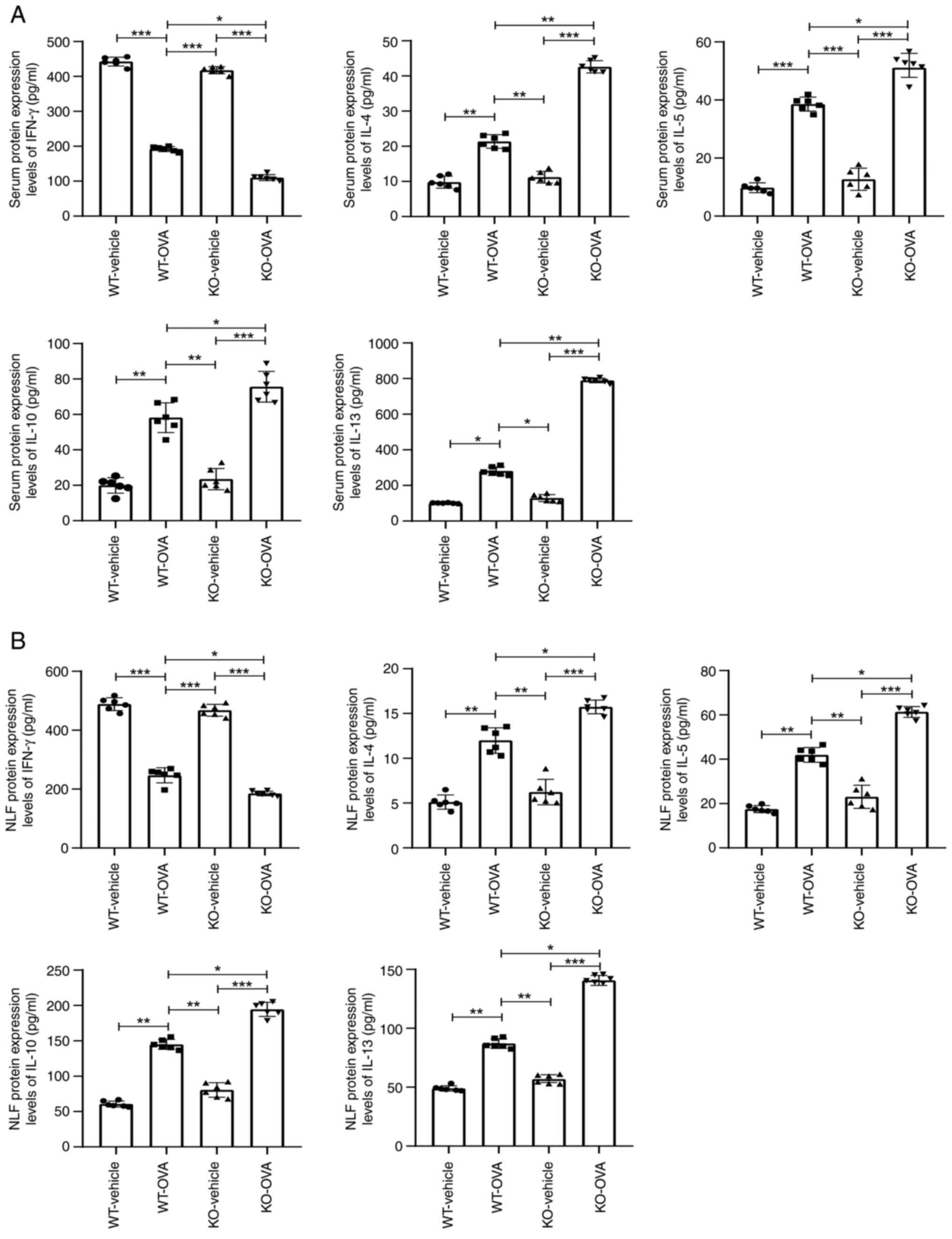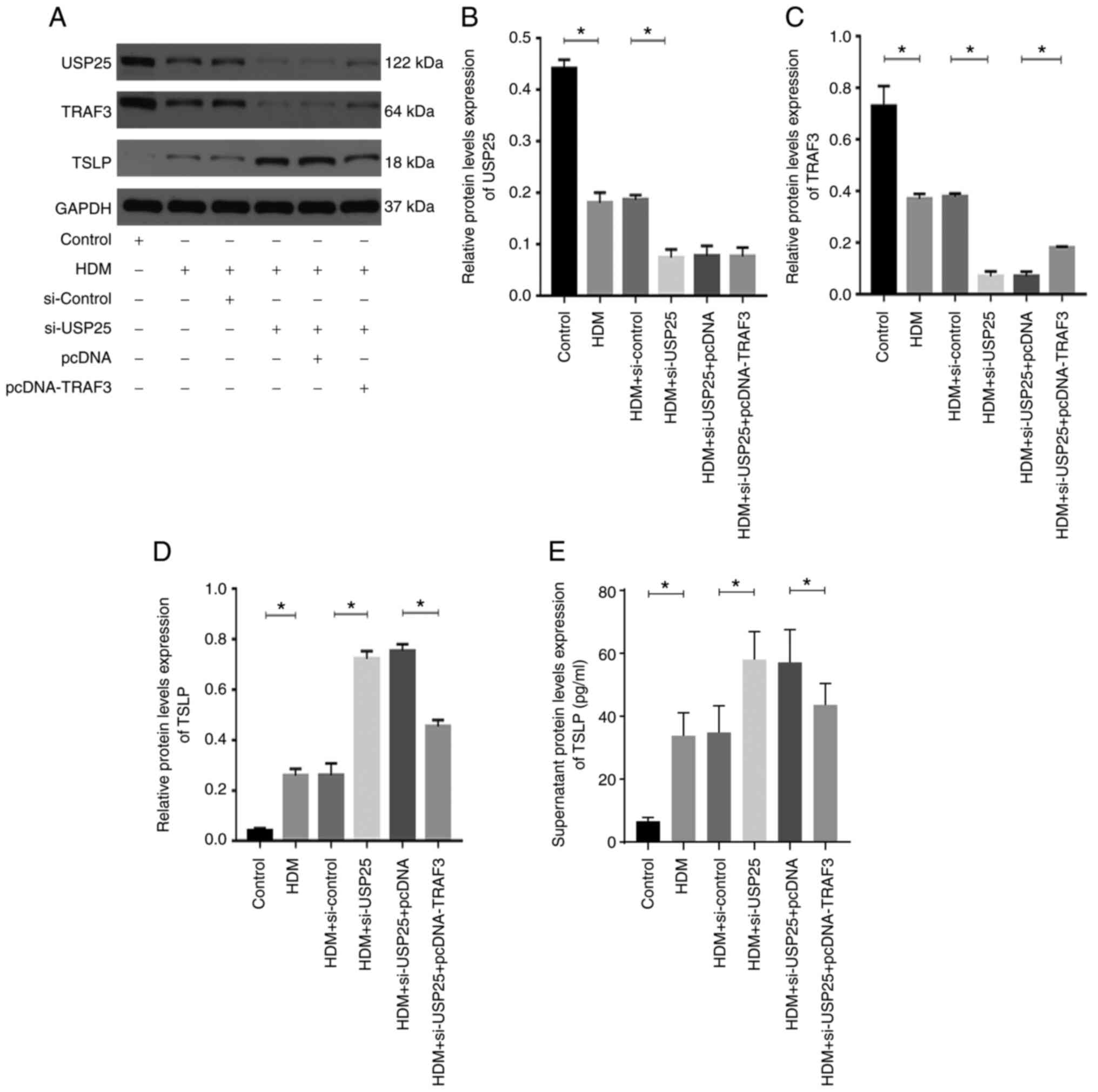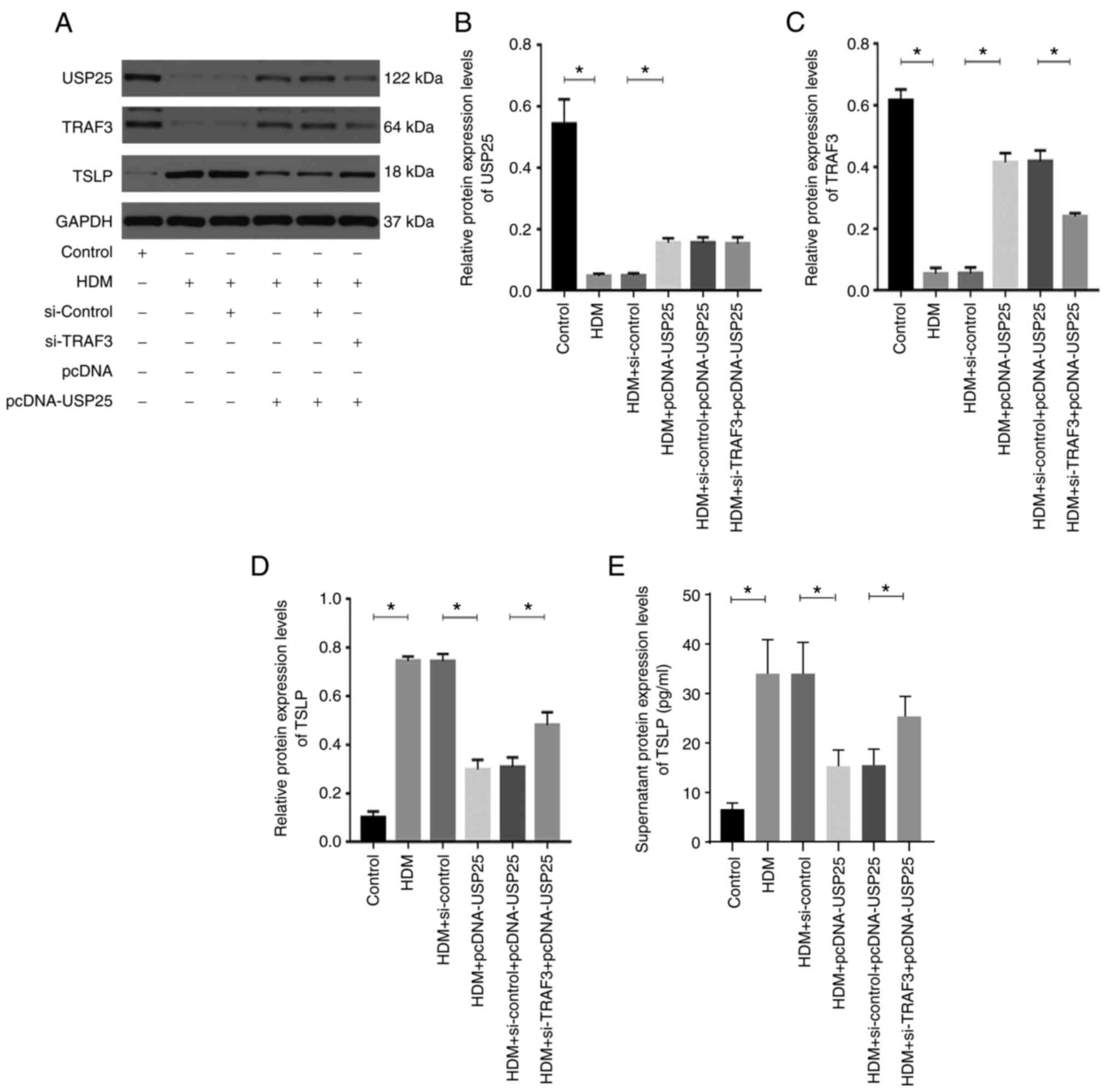|
1
|
Vandenplas O, Vinnikov D, Blanc PD, Agache
I, Bachert C, Bewick M, Cardell LO, Cullinan P, Demoly P, Descatha
A, et al: Impact of rhinitis on work productivity: A systematic
review. J Allergy Clin Immunol Pract. 6:1274–1286.e9. 2018.
View Article : Google Scholar : PubMed/NCBI
|
|
2
|
Brożek JL, Bousquet J, Agache I, Agarwal
A, Bachert C, Bosnic-Anticevich S, Brignardello-Petersen R,
Canonica GW, Casale T, Chavannes NH, et al: Allergic rhinitis and
its impact on asthma (ARIA) guidelines-2016 revision. J Allergy
Clin Immunol. 140:950–958. 2017. View Article : Google Scholar : PubMed/NCBI
|
|
3
|
Zhang Y and Zhang L: Increasing prevalence
of allergic rhinitis in China, allergy. Asthma Immunol Res.
11:156–169. 2019. View Article : Google Scholar : PubMed/NCBI
|
|
4
|
Savouré M, Bousquet J, Jaakkola JJK,
Jaakkola MS, Jacquemin B and Nadif R: Worldwide prevalence of
rhinitis in adults: A review of definitions and temporal evolution.
Clin Transl Allergy. 12:e121302022. View Article : Google Scholar : PubMed/NCBI
|
|
5
|
Sozańska B, Błaszczyk M, Pearce N and
Cullinan P: Atopy and allergic respiratory disease in rural Poland
before and after accession to the European union. J Allergy Clin
Immunol. 133:1347–1353. 2014. View Article : Google Scholar : PubMed/NCBI
|
|
6
|
Wang XD, Zheng M, Lou HF, Wang CS, Zhang
Y, Bo MY, Ge SQ, Zhang N, Zhang L and Bachert C: An increased
prevalence of self-reported allergic rhinitis in major Chinese
cities from 2005 to 2011. Allergy. 71:1170–1180. 2016. View Article : Google Scholar : PubMed/NCBI
|
|
7
|
Myong JP, Kim H, Lee K and Chang S: Time
trends of allergic rhinitis and effects of residence on allergic
rhinitis in Korea from 1998 through 2007–2009. Asian Nurs Res
(Korean Soc Nurs Sci). 6:102–106. 2012.PubMed/NCBI
|
|
8
|
Ha J, Lee SW and Yon DK: Ten-year trends
and prevalence of asthma, allergic rhinitis, and atopic dermatitis
among the Korean population, 2008–2017. Clin Exp Pediatr.
63:278–283. 2020. View Article : Google Scholar : PubMed/NCBI
|
|
9
|
Ordovas-Montanes J, Dwyer DF, Nyquist SK,
Buchheit KM, Vukovic M, Deb C, Wadsworth MH II, Hughes TK, Kazer
SW, Yoshimoto E, et al: Allergic inflammatory memory in human
respiratory epithelial progenitor cells. Nature. 560:649–654. 2018.
View Article : Google Scholar : PubMed/NCBI
|
|
10
|
Krohn IK, Seys SF, Lund G, Jonckheere AC,
de Casterlé ID, Ceuppens JL, Steelant B and Hellings PW: Nasal
epithelial barrier dysfunction increases sensitization and mast
cell degranulation in the absence of allergic inflammation.
Allergy. 75:1155–1164. 2020. View Article : Google Scholar : PubMed/NCBI
|
|
11
|
Bergougnan C, Dittlein DC, Hümmer E, Riepl
R, Eisenbart S, Böck D, Griesbaum L, Weigl A, Damialis A, Hartwig
A, et al: Physical and immunological barrier of human primary nasal
epithelial cells from non-allergic and allergic donors. World
Allergy Organ J. 13:1001092020. View Article : Google Scholar : PubMed/NCBI
|
|
12
|
Park JY, Choi JH, Lee SN, Cho HJ, Ahn JS,
Kim YB, Park DY, Park SC, Kim SI, Kang MJ, et al: Protein arginine
methyltransferase 1 contributes to the development of allergic
rhinitis by promoting the production of epithelial-derived
cytokines. J Allergy Clin Immunol. 147:1720–1731. 2021. View Article : Google Scholar : PubMed/NCBI
|
|
13
|
Wang WW, Zhu K, Yu HW and Pan YL:
Interleukin-17A potentiates interleukin-13-induced eotaxin-3
production by human nasal epithelial cells from patients with
allergic rhinitis. Int Forum Allergy Rhinol. 9:1327–1333. 2019.
View Article : Google Scholar : PubMed/NCBI
|
|
14
|
Marković I and Savvides SN: Modulation of
signaling mediated by TSLP and IL-7 in inflammation, autoimmune
diseases, and cancer. Front Immunol. 11:15572020. View Article : Google Scholar : PubMed/NCBI
|
|
15
|
Soumelis V, Reche PA, Kanzler H, Yuan W,
Edward G, Homey B, Gilliet M, Ho S, Antonenko S, Lauerma A, et al:
Human epithelial cells trigger dendritic cell mediated allergic
inflammation by producing TSLP. Nat Immunol. 3:673–680. 2002.
View Article : Google Scholar : PubMed/NCBI
|
|
16
|
Hammad H and Lambrecht BN: Barrier
epithelial cells and the control of type 2 immunity. Immunity.
43:29–40. 2015. View Article : Google Scholar : PubMed/NCBI
|
|
17
|
Toki S, Goleniewska K, Zhang J, Zhou W,
Newcomb DC, Zhou B, Kita H, Boyd KL and Peebles RS Jr: TSLP and
IL-33 reciprocally promote each other's lung protein expression and
ILC2 receptor expression to enhance innate type-2 airway
inflammation. Allergy. 75:1606–1617. 2020. View Article : Google Scholar : PubMed/NCBI
|
|
18
|
Takai T: TSLP expression: Cellular
sources, triggers, and regulatory mechanisms. Allergol Int.
61:3–17. 2012. View Article : Google Scholar : PubMed/NCBI
|
|
19
|
Meng P, Chen ZG, Zhang TT, Liang ZZ, Zou
XL, Yang HL and Li HT: IL-37 alleviates house dust mite-induced
chronic allergic asthma by targeting TSLP through the NF-κB and
ERK1/2 signaling pathways. Immunol Cell Biol. 97:403–415. 2019.
View Article : Google Scholar : PubMed/NCBI
|
|
20
|
Kuroda Y, Yuki T, Takahashi Y, Sakaguchi
H, Matsunaga K and Itagaki H: An acid-hydrolyzed wheat protein
activates the inflammatory and NF-κB pathways leading to long TSLP
transcription in human keratinocytes. J Toxicol Sci. 45:327–337.
2020. View Article : Google Scholar : PubMed/NCBI
|
|
21
|
Song L and Luo ZQ: Post-translational
regulation of ubiquitin signaling. J Cell Biol. 218:1776–1786.
2019. View Article : Google Scholar : PubMed/NCBI
|
|
22
|
Budroni V and Versteeg GA: Negative
regulation of the innate immune response through proteasomal
degradation and deubiquitination. Viruses. 13:5842021. View Article : Google Scholar : PubMed/NCBI
|
|
23
|
Georges A, Gros P and Fodil N: USP15: A
review of its implication in immune and inflammatory processes and
tumor progression. Genes Immun. 22:12–23. 2021. View Article : Google Scholar : PubMed/NCBI
|
|
24
|
Ren Y, Zhao Y, Lin D, Xu X, Zhu Q, Yao J,
Shu HB and Zhong B: The type I interferon-IRF7 axis mediates
transcriptional expression of Usp25 gene. J Biol Chem.
291:13206–13215. 2016. View Article : Google Scholar : PubMed/NCBI
|
|
25
|
Long C, Lai Y, Li J, Huang J and Zou C:
LPS promotes HBO1 stability via USP25 to modulate inflammatory gene
transcription in THP-1 cells. Biochim Biophys Acta Gene Regul Mech.
1861:773–782. 2018. View Article : Google Scholar : PubMed/NCBI
|
|
26
|
Zhong B, Liu X, Wang X, Liu X, Li H,
Darnay BG, Lin X, Sun SC and Dong C: Ubiquitin-specific protease 25
regulates TLR4-dependent innate immune responses through
deubiquitination of the adaptor protein TRAF3. Sci Signal.
6:ra352013. View Article : Google Scholar : PubMed/NCBI
|
|
27
|
Lin D, Zhang M, Zhang MX, Ren Y, Jin J,
Zhao Q, Pan Z, Wu M, Shu HB, Dong C and Zhong B: BInduction of
USP25 by viral infection promotes innate antiviral responses by
mediating the stabilization of TRAF3 and TRAF6. Proc Natl Acad Sci
USA. 112:11324–11329. 2015. View Article : Google Scholar : PubMed/NCBI
|
|
28
|
Cheng L, Chen J, Fu Q, He S, Li H, Liu Z,
Tan G, Tao Z, Wang D, Wen W, et al: Chinese society of allergy
guidelines for diagnosis and treatment of allergic rhinitis.
Allergy Asthma Immunol Res. 10:300–353. 2018. View Article : Google Scholar : PubMed/NCBI
|
|
29
|
Chen M, Wu Y, Yuan S, Tang M, Zhang L,
Chen J, Li L, Wu J, Zhang J and Yin Y: Allergic rhinitis
improvement in asthmatic children after using acaricidal bait: A
randomized, double-blind, cross-placebo study. Front Pediatr.
9:7091392021. View Article : Google Scholar : PubMed/NCBI
|
|
30
|
Deng YQ, Yang YQ, Wang SB, Li F, Liu MZ,
Hua QQ and Tao ZZ: Intranasal administration of lentiviral miR-135a
regulates mast cell and allergen-induced inflammation by targeting
GATA-3. PLoS One. 10:e01393222015. View Article : Google Scholar : PubMed/NCBI
|
|
31
|
Xiang R, Xu Y, Zhang W, Kong YG, Tan L,
Chen SM, Deng YQ and Tao ZZ: Semaphorin 3A inhibits allergic
inflammation by regulating immune responses in a mouse model of
allergic rhinitis. Int Forum Allergy Rhinol. 9:528–537. 2019.
View Article : Google Scholar : PubMed/NCBI
|
|
32
|
Patel NN, Kohanski MA, Maina IW, Workman
AD, Herbert DBR and Cohen NA: Sentinels at the wall:
Epithelial-derived cytokines serve as triggers of upper airway type
2 inflammation. Int Forum Allergy Rhinol. 9:93–99. 2019. View Article : Google Scholar : PubMed/NCBI
|
|
33
|
Papazian D, Hansen S and Würtzen PA:
Airway responses towards allergens-from the airway epithelium to T
cells. Clin Exp Allergy. 45:1268–1287. 2015. View Article : Google Scholar : PubMed/NCBI
|
|
34
|
Cianferoni A and Spergel J: The importance
of TSLP in allergic disease and its role as a potential therapeutic
target. Expert Rev Clin Immunol. 10:1463–1474. 2014. View Article : Google Scholar : PubMed/NCBI
|
|
35
|
Pan Z, Zhou Y, Luo X, Ruan Y, Zhou L, Wang
Q, Yan YJ, Liu Q and Chen J: Against NF-κB/thymic stromal
lymphopoietin signaling pathway, catechin alleviates the
inflammation in allergic rhinitis. Int Immunopharmacol. 61:241–248.
2018. View Article : Google Scholar : PubMed/NCBI
|
|
36
|
Kumagai A, Kubo T, Kawata K, Kamekura R,
Yamashita K, Jitsukawa S, Nagaya T, Sumikawa Y, Himi T, Yamashita T
and Ichimiya S: Keratinocytes in atopic dermatitis express abundant
ΔNp73 regulating thymic stromal lymphopoietin production via NF-Κb.
J Dermatol Sci. 88:175–183. 2017. View Article : Google Scholar : PubMed/NCBI
|
|
37
|
Lee HC and Ziegler SF: Inducible
expression of the proallergic cytokine thymic stromal lymphopoietin
in airway epithelial cells is controlled by NFkappaB. Proc Natl
Acad Sci USA. 104:914–919. 2007. View Article : Google Scholar : PubMed/NCBI
|
|
38
|
Cultrone A, de Wouters T, Lakhdari O,
Kelly D, Mulder I, Logan E, Lapaque N, Doré J and Blottière HM: The
NF-κB binding site located in the proximal region of the TSLP
promoter is critical for TSLP modulation in human intestinal
epithelial cells. Eur J Immunol. 43:1053–1062. 2013. View Article : Google Scholar : PubMed/NCBI
|
|
39
|
Harhaj EW and Dixit VM: Regulation of
NF-κB by deubiquitinases. Immunol Rev. 246:107–124. 2012.
View Article : Google Scholar : PubMed/NCBI
|
|
40
|
Aksentijevich I and Zhou Q: NF-κB pathway
in autoinflammatory diseases: Dysregulation of protein
modifications by ubiquitin defines a new category of
autoinflammatory diseases. Front Immunol. 8:3992017. View Article : Google Scholar : PubMed/NCBI
|
|
41
|
Shi JH and Sun SC: Tumor necrosis factor
receptor-associated factor regulation of nuclear factor κB and
mitogen-activated protein kinase pathways. Front Immunol.
9:18492018. View Article : Google Scholar : PubMed/NCBI
|
|
42
|
Häcker H, Tseng PH and Karin M: Expanding
TRAF function: TRAF3 as a tri-faced immune regulator. Nat Rev
Immunol. 11l:457–468. 2011. View Article : Google Scholar : PubMed/NCBI
|
|
43
|
He JQ, Saha SK, Kang JR, Zarnegar B and
Cheng G: Specificity of TRAF3 in its negative regulation of the
noncanonical NF-kappa B pathway. J Biol Chem. 282:3688–3694. 2007.
View Article : Google Scholar : PubMed/NCBI
|
|
44
|
Cildir G, Low KC and Tergaonkar V:
Noncanonical NF-κB signaling in health and disease. Trends Mol Med.
22:414–429. 2016. View Article : Google Scholar : PubMed/NCBI
|
|
45
|
Zarnegar B, Yamazaki S, He JQ and Cheng G:
Control of canonical NF-kappaB activation through the NIK-IKK
complex pathway. Proc Natl Acad Sci USA. 105:3503–3508. 2008.
View Article : Google Scholar : PubMed/NCBI
|
|
46
|
Eden K, Rothschild DE, McDaniel DK, Heid B
and Allen IC: Noncanonical NF-κB signaling and the essential kinase
NIK modulate crucial features associated with eosinophilic
esophagitis pathogenesis. Dis Model Mech. 10:1517–1527. 2017.
View Article : Google Scholar : PubMed/NCBI
|
|
47
|
Wen J, Bai H, Chen N, Zhang W, Zhu X, Li P
and Gong J: USP25 promotes endotoxin tolerance via suppressing
K48-linked ubiquitination and degradation of TRAF3 in Kupffer
cells. Mol Immunol. 106:53–62. 2019. View Article : Google Scholar : PubMed/NCBI
|
|
48
|
Zhong B, Liu X, Wang X, Chang SH, Liu X,
Wang A, Reynolds JM and Dong C: Negative regulation of
IL-17-mediated signaling and inflammation by the ubiquitin-specific
protease USP25. Nat Immunol. 13:1110–1117. 2012. View Article : Google Scholar : PubMed/NCBI
|















